| Location | Thottam Type | Thottam Size |
|---|---|---|
| Chennai, Tamil Nadu, India | Terrace | 1,500 sqft |
NM Mythreyan, who works at a car factory, was inspired to set up a garden after attending a kitchen garden workshop in 2013. The workshop he attended helped him reconnect with gardening almost 40 years after he was introduced to it by his mother who had a beautiful flower garden at home. Mythreyan says that he always had a passion for gardening but was not trained in it. The 2013 workshop re-kindled his passion for it and drove him to set up an organic garden of his own on the terrace of his independent house.
Mythreyan says that it was a trial and error method in the beginning as kitchen gardens are quite challenging to maintain. He began planting vegetables in his terrace garden which turned out very well and over time, he noticed that the household spending on vegetables had reduced significantly. This led Mythreyan to replace most of his flowering plant varieties with vegetables and the family planted herbs, to facilitate cross pollination.
Today, Mythreyan and his wife plant different varieties of vegetables, greens, fruits, flowers, herbs and some ornamental plants in their 1,500 sq.ft. terrace space. The plants are arranged in neat rows and grown in HDPE bags because clay pots can crack easily and are heavy, whereas the bags are light and waterproof and prevent water seepage into the floor below. One third of the terrace is covered with a green shade net. There is also a small fruit section on top of the water tank. Plants grown include: eggplant (kathirikkai), chillies (milagai), curry leaves (karuveppilai), tomatoes (thakkali), gourds, ladies finger (vendakkai), henna (marudhani), and leafy greens (keerai vagaigal) like spinach (keerai).
In summer, cluster beans (kothavarangai), cucumber (vellarikai), watermelon (dharpusinika), okra (vendakkai), and bitter gourd (pavakkai) are planted, while in winter, plants include long beans (karamani), radish (mullangi), carrot (sem mullangi), beetroot and capsicum (kudai milagai).
The garden also attracts a lot of birds which are especially keen on the fruit from fig plants. He follows adequate watering, fertilizing and coco coir mulching practices to save water and maintain the soil in an optimum condition. Home to more than 350 plants, the garden does not make use of a drip irrigation system as he believes that manual watering is the best method as plants can be monitored and observed properly from time to time.
Mythreyan’s plants have taught him very good lessons. He has planted more country variety flowering plants which attract more bees and butterflies as well as other beneficial insects like ladybugs which act as natural pest control agents. He even makes his own plant supplements and other farm inputs like pesticides in-house. Regular treatment by spraying the plants with these home based organic pest controllers and growth promoters, as well as practicing multi-cropping and making sure the garden resembles a natural ecosystem ensures good yields and that there is no mass attack by pests.
Above all, Mythreyan believes that caring for the plants plays a vital role in healthy maintenance. If plants are taken care of regularly, it is possible to find pests and other problems at their initial stages so that control measures may be taken before the problem spreads. Food waste and dry leaves are composted to use as manure. Neem oil, castor oil, and a mix of chilli, ginger and garlic extracts are used as pest control for the plants. He also covers the soil with a layer of leaves in summer to prevent overheating and mixes coir with the soil, which helps absorb and hold water.
As they continued to farm on the terrace, Mythreyan and his family began to produce 60 to 70 percent of the harvest they needed for their own consumption. Having realised that they often had excess produce, they offered these to their neighbours. Slowly, the neighbours began coming to them for gardening advice and support. This prompted Mythreyan to offer professional advice and support to help people to utilize their terraces in a more useful way.
The family started a company, ‘Indra Terrace Gardens’, named after Mythreyan’s mother, through which they help people set up their own terrace gardens. To help themselves sustain the business, they charge a nominal fee for advice. He also allows the general public and school and college students to visit his garden free of charge.
Indra Gardens have helped build over 1,500 terrace gardens across Chennai. Mythreyan believes that children have to be educated about the difficulties that farmers face in organic farming. He wishes to encourage his son Prathyuman to take interest in the agriculture field. Teaching him the importance of farming and gardening from a young age, his son seems to be quite interested in it.
Mythreyan envisions an united effort to re-imagine the city with green terraces, occupied with plants and not a concrete jungle.
Mythreyan, Indra Terrace Gardens
Address: 3/352, Sri Sakthi Nagar, 1st street, Rose Nagar
200 Feet Radial Rd, Kovilambakkam, Chennai, Tamil Nadu 600117
Phone: +9198842 94021
REFERENCES
Personal Interview with Mythreyan;
Varghese R. (July 26, 2018). Tips on how to grow your own vegetables on a terrace garden. The Hindu, Accessed from: https://www.thehindu.com/life-and-style/homes-and-gardens/tips-on-how-to-grow-your-own-vegetables-on-a-terrace-garden/article24519207.ece
The New Indian Express, (November 28, 2019). A 1500-square-ft organic terrace garden in the heart of Chennai. New Indian Express, Accessed from: https://www.newindianexpress.com/good-news/2019/nov/28/a-1500-square-ft-organic-terrace-garden-in-the-heart-of-chennai-2068340.html

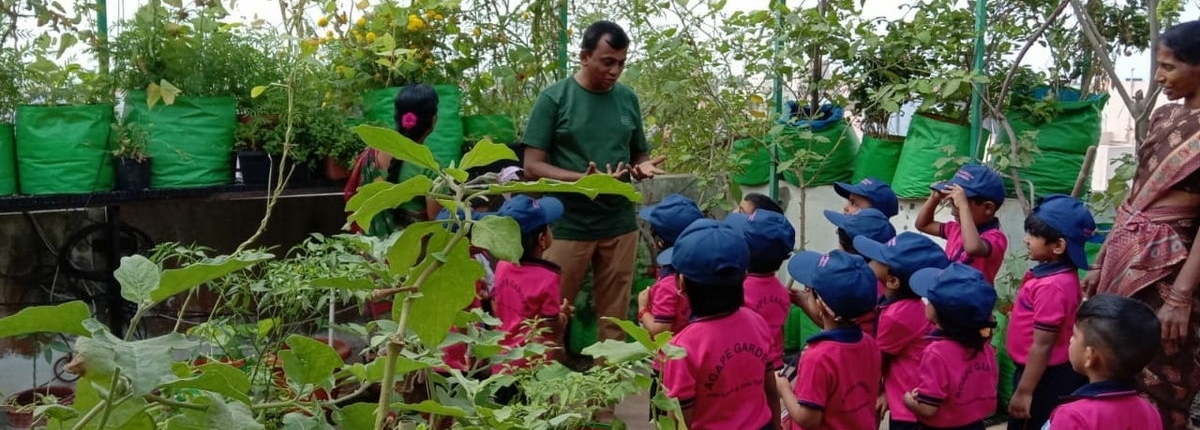
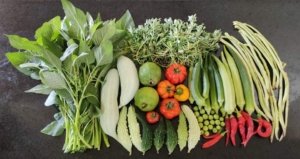
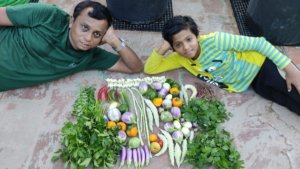
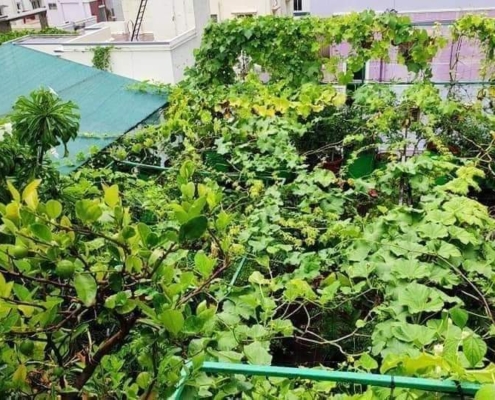
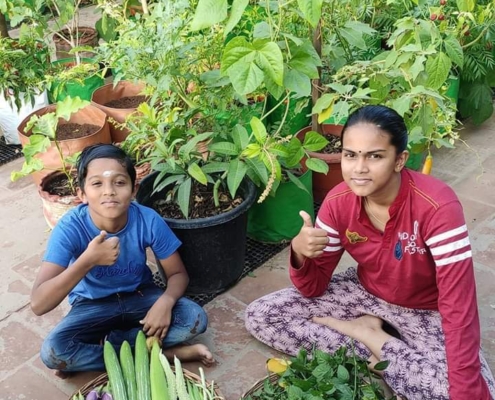
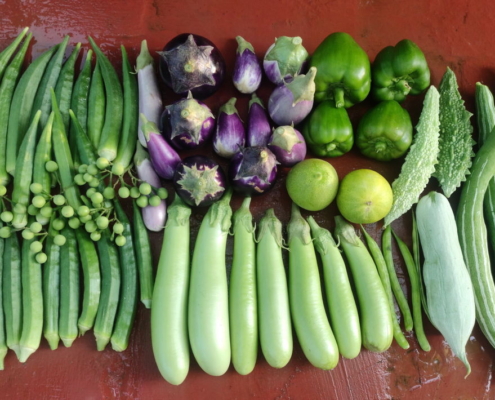
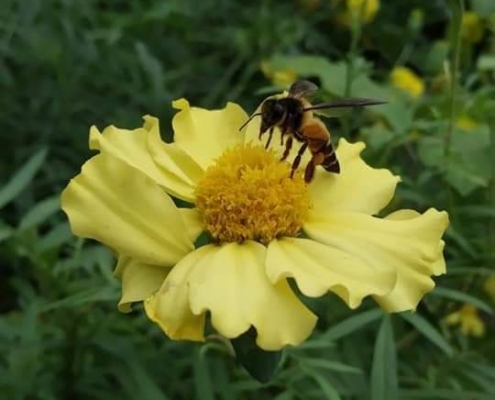
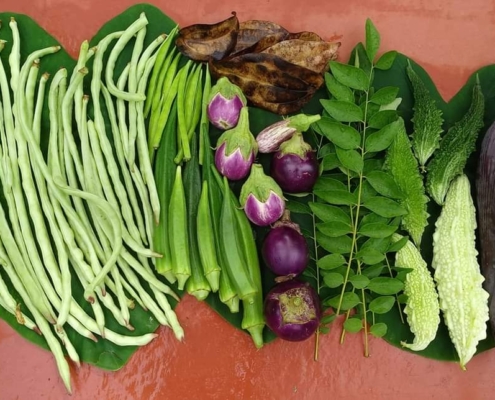
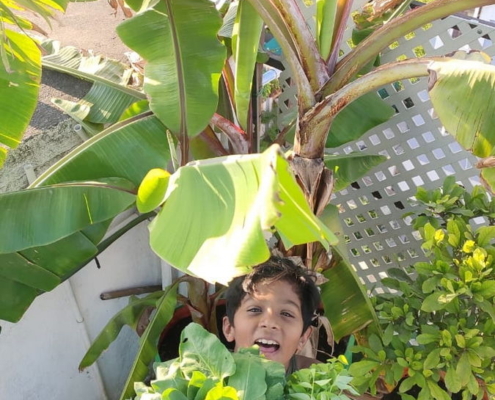
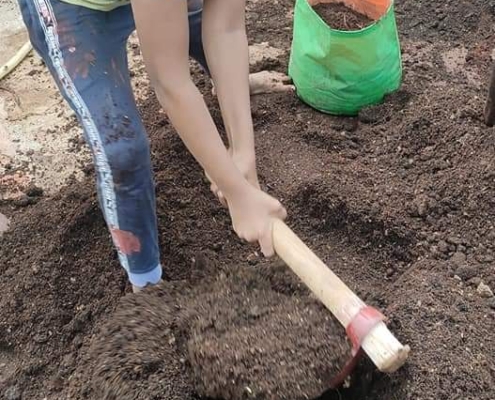
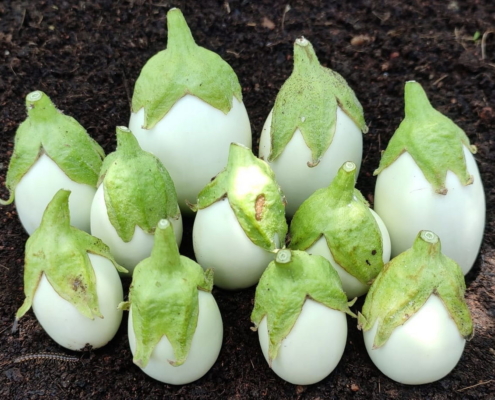
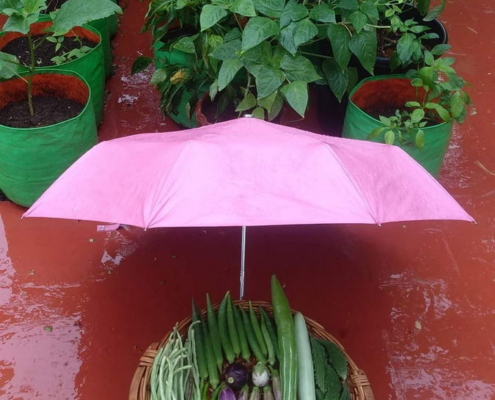
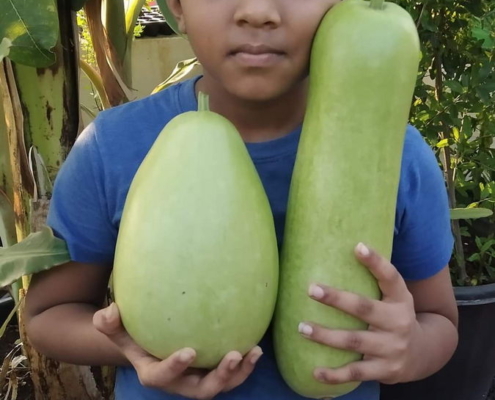
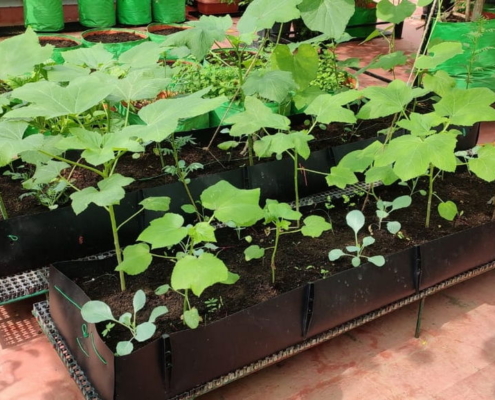
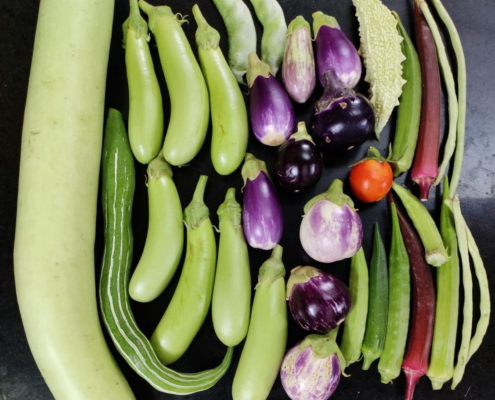
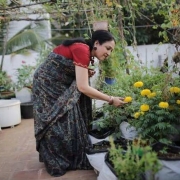 The Hindu
The Hindu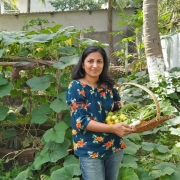 Kalpana Manivanan
Kalpana Manivanan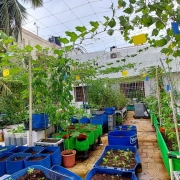 © S Raghu
© S Raghu © The Organic Farm
© The Organic Farm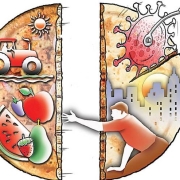 © The Hindu
© The Hindu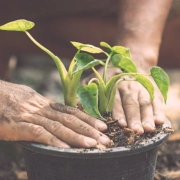 © The Better India
© The Better India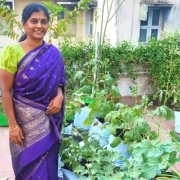 © The Better India
© The Better India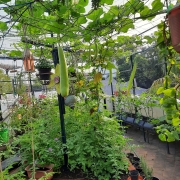 © Sumithra Srikanth
© Sumithra Srikanth © Gayatri Ramachandran
© Gayatri Ramachandran